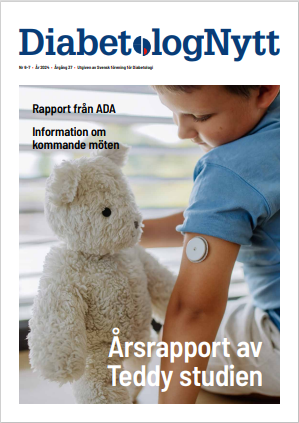The first-line diabetes drug metformin may have a role in ovarian cancer treatment.
Point out that the study suggests that metformin should be evaluated in prospective trials for treating ovarian cancer given its association association with improved survival.
The first-line diabetes drug metformin may have a role in ovarian cancer treatment, researchers found.
In a retrospective, case-control study, women who’d been taking metformin during their ovarian cancer treatment — primarily for type 2 diabetes — had significantly better survival than cancer patients not on the drug (73% versus 44%, P=0.0002), reported Viji Shridhar, PhD, of the Mayo Clinic in Rochester, Minn., and colleagues online in Cancer.
”Although causation could not be assessed [in a case-control study], we observed that receipt of metformin was associated with significantly better survival in ovarian cancer,” they wrote. ”Metformin is worthy of clinical trials in ovarian cancer.”
Most of the currently available therapies in up-front and recurrent ovarian cancer have limited efficacy, the researchers said, yet it’s prohibitively expensive to discover and develop new drugs.
Instead, some researchers are turning to drug repositioning, in which existing drugs are used to treat new diseases.
Metformin, a first-line agent in type 2 diabetes, has previously shown anti-cancer effects in ovarian cancer, both in vitro and in vivo, and similar observations have been made for neoplasms in the prostate, colon, pancreas, and brain.
There is also a multi-center, phase III, randomized trial testing metformin in breast cancer, the researchers said.
Because only small studies have looked at outcomes for ovarian cancer patients treated with metformin, Shridhar’s group conducted a retrospective case-control study of ovarian cancer patients who were treated at the Mayo Clinic between 1995 and 2010.
A total of 72 of these women had been taking metformin for type 2 diabetes during their ovarian cancer treatment, and they were matched with 143 controls who didn’t have diabetes and weren’t taking metformin.
They also assessed a subset of 61 women who’d had epithelial ovarian cancer, and compared them with 178 nondiabetic controls with the same disease.
The researchers also included a diabetic control group of 103 patients who had both diabetes and epithelial ovarian cancer and were taking insulin or other diabetes drugs instead of metformin.
Overall, the mean duration of metformin intake was 2.3 years, given at doses ranging from 500 mg twice a day to 1 gram twice a day.
In the analysis of 72 cases and 143 controls, Shridhar and colleagues found that cancer cases taking metformin had significantly better 5-year disease-specific survival than controls (73% versus 44%, P=0.0002).
After adjusting for age, year of diagnosis, body mass index (BMI), disease stage, histology, and chemotherapy, only tumor grade (hazard ratio 8.6, 95% CI 1.2 to 6.3, P=0.03) and taking metformin (HR 2.7, 95% CI 1.4 to 5.4, P=0.004) remained independent predictors of survival in this group, they reported.
In the analysis of cases and controls with epithelial ovarian cancer, those taking metformin also had significantly better 5-year survival (67% versus 47%, P=0.006).
And when comparing the epithelial cohort taking metformin to diabetic controls with epithelial disease, the researchers again found significantly better survival for those on metformin (67% versus 40%, P=0.003).
The study was limited by its retrospective nature, its small sample size, and a lack of information on patient intake of metformin before their cancer diagnosis.
Still, the authors concluded that metformin appears to be associated with better survival in ovarian cancer patients, and that the drug should be evaluated in prospective trials for treating this disease.
The study was supported by grants from the Fred C. and Katherine B. Andersen Foundation and NIH.
The researchers reported no conflicts of interest.
Kumar S, et al ”Metformin intake is associated with better survival in ovarian cancer” Cancer 2012;
From Medpage Today
Nyhetsinfo
Abstract
Cancer online Dec 3
Abstract
BACKGROUND:
The objective of this case-control study was to identify any association of metformin intake with the survival of patients with ovarian cancer.
METHODS:
In this retrospective case-control study, women with ovarian cancer who received metformin (cases) were compared with women with ovarian cancer who did not receive metformin (controls). A 2-layered analysis was conducted. In preliminary analysis, all cases (the OC cohort) were compared with controls at a 1:2 ratio. Subsequently, in definitive analysis, only patients who had epithelial ovarian cancer (the EOC cohort) were compared with controls at a 1:3 ratio. In the EOC cohort, cases were matched with controls for age (±5 years), International Federation of Gynecology and Obstetrics stage, and residual disease. Prognostic variables and disease specific survival were compared using chi-square tests, the Kaplan-Meier (log-rank) method, and Cox proportional hazards analysis.
RESULTS:
In a preliminary analysis of the OC cohort (72 cases and 143 controls), cases had better survival (5-year disease-specific survival for cases vs controls, 73% vs 44%; P = .0002). In the definitive analysis of the EOC cohort (61 cases and 178 controls), the distribution of age, disease stage, optimal cytoreduction, serous histology, and platinum chemotherapy remained similar between cases and controls (P > .05). Despite these similarities, cases had significantly better survival (5-year disease-specific survival for cases vs controls, 67% vs 47%; P = .007). On multivariate analysis, metformin remained an independent predictor of survival (hazard ratio, 2.2; 95% confidence interval, 1.2-3.8; P = .007) after controlling for disease stage, grade, histology, chemotherapy, body mass index, and surgical cytoreduction.
CONCLUSIONS:
The results of this study indicated an association of metformin intake with survival in patients with ovarian cancer. The receipt of metformin was associated with better survival, and the authors concluded that metformin is worthy of clinical trials in ovarian cancer.
www red DiabetologNytt





